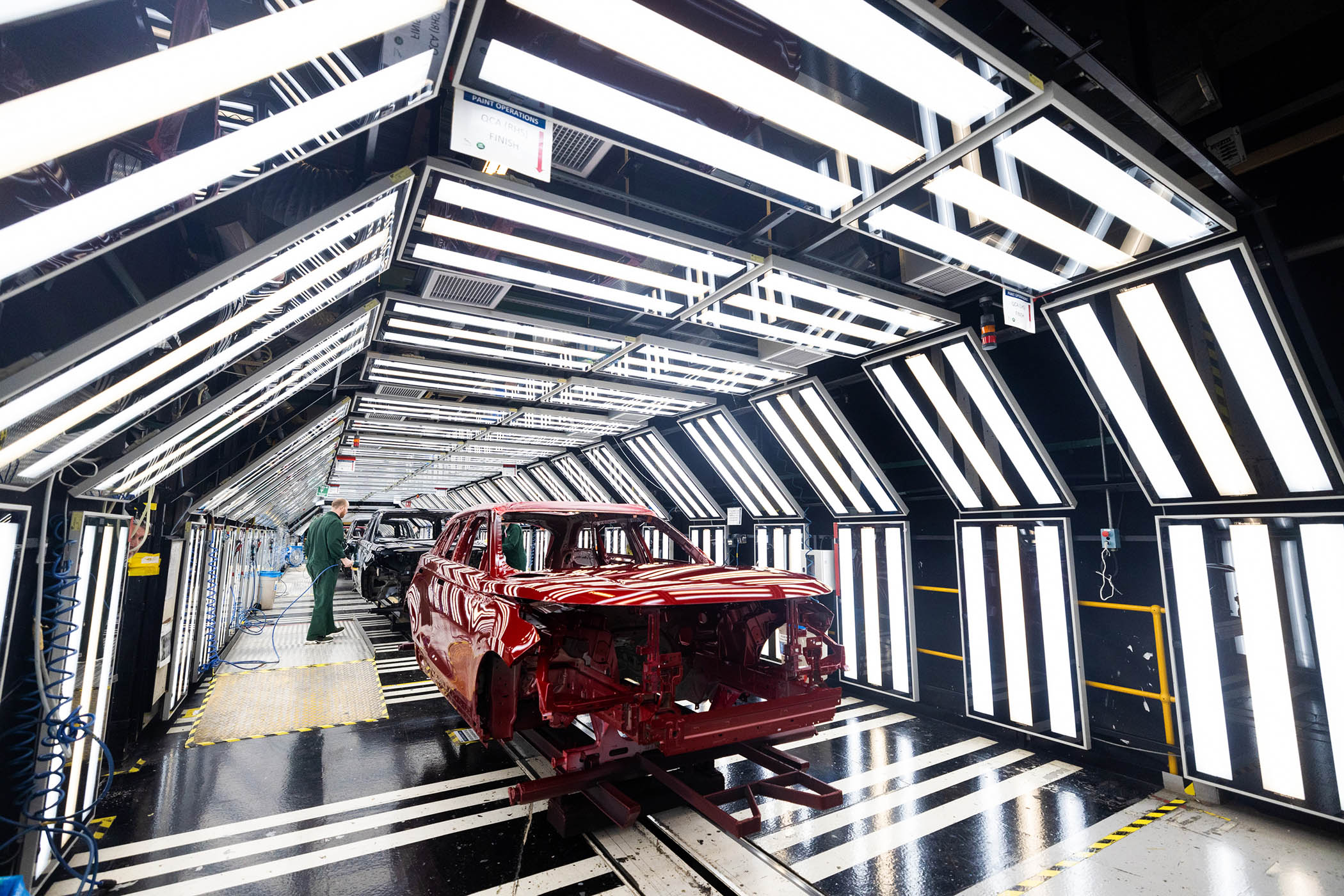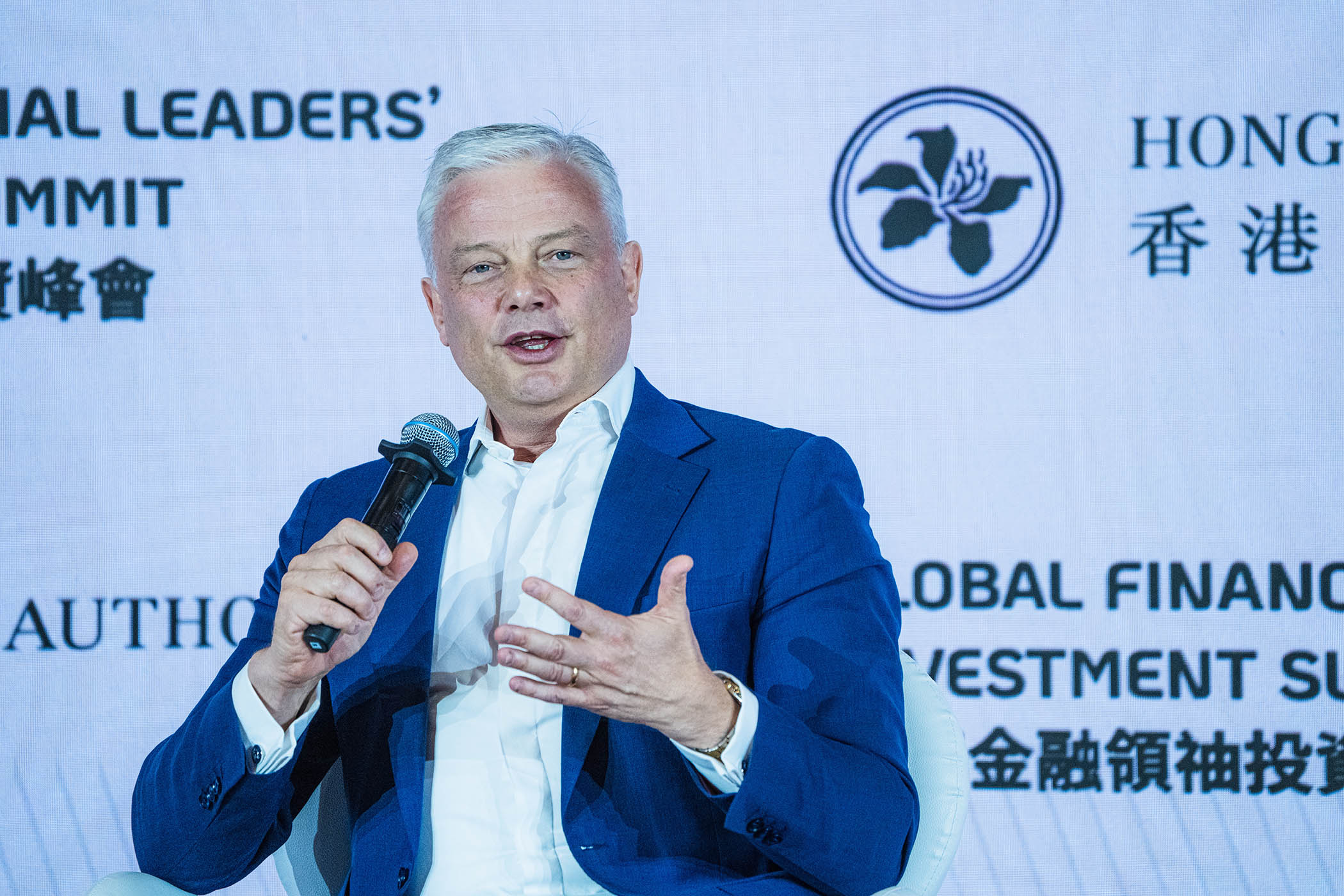In April, Britain’s biggest car maker, Jaguar Land Rover (JLR), had just cleared a £5bn debt pile it racked up following the Covid-19 pandemic. Now, a devastating cyberattack – which has halted production lines since 31 August – has set it back again, with consequences that will reverberate across the industry.
JLR directly employs around 33,000 people and supports almost 200,000 workers in the UK, many at suppliers now under threat. Several of those suppliers have been left with only a few weeks of cashflow, even though the company has redeployed staff to clear £300m of outstanding payments. Some smaller firms only have days of cash left.
JLR has paused its production until 1 October but it may not fully restart until November
JLR has paused its production until 1 October but it may not fully restart until November
The Observer has learned that Liam Byrne, chair of the Business and Trade Committee, has written to chancellor Rachel Reeves after speaking to suppliers privately on Thursday. Byrne told Reeves the financial pressure on suppliers is becoming untenable. Suppliers questioned some of the proposed solutions, including one that would involve the government directly purchasing parts from JLR suppliers and then selling them on to JLR. Byrne has demanded a response by Monday, the second day of the Labour party conference.
The car maker’s economic activity contributed £17.9bn to UK GDP in 2024, and an estimated £4bn in tax. The company had already forecast lower profits for this financial year due to the impact of US tariffs. The cyberattack adds further pressure.
David Bailey, a professor at the University of Birmingham, estimates a £2.2bn hit to revenue for September alone, and spending on resolving the attack that is likely to be in the hundreds of millions. Given that JLR contributed £1 in every £160 of UK GDP in 2024, the threat to the UK economy is clear.
In light of this, there is growing frustration in the West Midlands at the government response. Following a poorly received visit to JLR on Tuesday, one influential Birmingham blogger, Mike Olley, likened minister for industry Chris McDonald to an “empty suit” delivering soundbites instead of solutions.
A different mood prevailed in April, when a purposeful Keir Starmer strode alongside JLR CEO Adrian Mardell, with Reeves a few paces behind. Their visit to the Range Rover factory in Solihull was a show of support for the automotive industry following the chaos of Donald Trump’s tariffs.
“We have ... come here because we are going to back you to the hilt,” Starmer said. For some, those promises are beginning to ring hollow.
Experts are now calling for a series of “off-the-shelf” rescue deals, such as financial support and business interruption loan guarantees, to be established for future industrial emergencies. McDonald called such suggestions “unhelpful” during his visit to JLR, but Bailey said they were commonplace in Germany.
JLR repeatedly pushed back a date for restarting production as the full scale of the cyberattack became clear. The pause is now extended to Wednesday 1 October and there are suggestions that full production might not restart until November.
Newsletters
Choose the newsletters you want to receive
View more
For information about how The Observer protects your data, read our Privacy Policy
Bailey suggests the need to recoup losses could now impact JLR’s future model plans. The firm has already delayed the launch of an electric Range Rover until next year. The electric relaunch of the Jaguar brand could also be affected.
In September 2023, Tata-owned JLR extended a partnership with Tata Consultancy Services (TCS) to “accelerate its digital transformation”. Services included IT and cybersecurity.
An investigation into the crippling cyberattack continues. The Insurer, a trade title, reported last week that JLR had failed to secure a cyber insurance deal ahead of the incident.
In response to the Government agreeing to underwrite a £1.5 billion loan guarantee to JLR as it continues to face a shutdown following the attack, Sarah Olney MP, Liberal Democrat Business Spokesperson said:
“The Government and JLR must urgently clarify whether this emergency loan is going to be enough to properly protect tens of thousands of jobs and companies in the supply chain.”
“This move is of course welcome - and hopefully not too late - but the Government has been too slow to act.”
“The Government must be prepared to provide further support, including a furlough scheme for affected workers, if needed. We must also see a plan for ensuring cyber security standards are improved so that situations like this aren't repeated. Liberal Democrats will continue to hold the Government's feet to the fire so our car industry is protected.”
• This article has been updated to include a response from the Liberal Democrats.
Photograph by Chris Ratcliffe/Bloomberg via Getty Images


